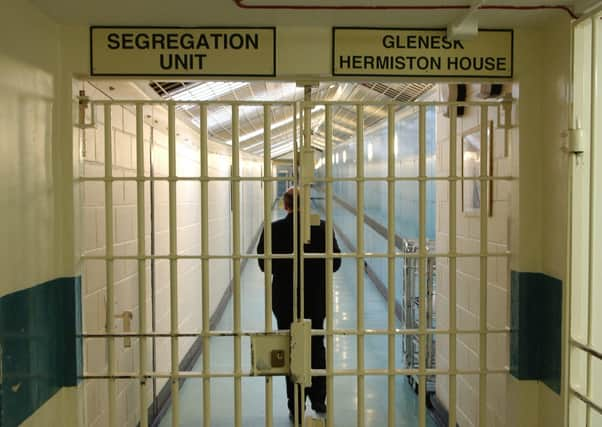How to challenge your own biased opinions – Karyn McCluskey


I am not a biased person. Other people show bias, and always in the wrong direction. I just see the world as it is; the right way.
Don’t we all feel like this? No one likes to believe themselves biased and yet we are, even if we’re unaware of it. These inclinations and prejudices work away in the background, swaying how we think about everything from politics to football to child-rearing. It’s difficult to retrain our bias, but the first step is to question why you think, feel or act in a particular way. This is uncomfortable – self-scrutiny always is – but, if you’ll excuse a moment of pretension, as Socrates said, the unexamined life is not worth living.
Advertisement
Hide AdAdvertisement
Hide AdA friend, who does amazing, selfless, important work with some of our most vulnerable citizens for no financial reward, was recently on the receiving end of some unpleasantness on Twitter (who knew). Her work with people who’d been in prison had aggravated a stranger online. Endlessly patient, she tried to understand their position and explain her own, and offered to speak face-to-face (socially distanced of course). The response was as you might expect; more anger, some insults and a repetition of his own beliefs. The truth was he didn’t want a debate: in fact he was in disbelief that anyone could possibly disagree with him, but in doing so he gave some insight as to why he felt the way he did.
This exchange made me think about justice and public opinion. It’s assumed (primarily by those in power) that the public are hell-bent on retribution for those who break the law. There is a reflex towards punishment, but polling shows that in Scotland prevention is valued more highly. Why such a confused picture? There are a number of cognitive biases that can be used to influence our views, but if you’re aware of them, you can learn to neutralise them.
So, let’s play spot the cognitive bias! Do you find that the information you come across confirms how right you are? You are exhibiting confirmation bias – you’re searching for material that affirms what you already think. However uncomfortable, we should seek out and listen to the rationale of those you disagree with.
Do certain subjects loom large in your mind because the news outlets you frequent disproportionately cover them? This is coverage bias – topics are sometimes magnified from molehills to mountains because it serves some other purpose.
Does it often seem that there’s no space for ‘grey’ in big important issues; they are either black or white and you can only be for or against? This is concision bias, when the focus is on the aspects that are easiest to communicate, filleting out nuance and in the process polarising public opinion. Trump’s ‘Build the wall’ is a great example of how this works.
Now my favourite one. Do you believe that everything was better ‘in the old days’? Less crime, honourable politicians and well-mannered young people? You are suffering from a case of declinism, where you romanticise the past.
Do you think your Twitter feed represents the general feelings of the public? This is false consensus, where you overestimate the proportion of people who agree with you and, as we’ve seen in recent years, can get you in a terrible mess. I could go on, but I imagine we all recognise at least some of these. I know I’m guilty of a couple. What it comes down to is (concision bias aside!) putting yourself in another’s shoes is generally a good start in challenging your own bias. We are becoming more polarised in lockdown, our biases more entrenched – we seem to find comfort and camaraderie among those who agree with us, but for progression and real change we need to reach out to more people that don’t, like my friend at the beginning of this article. Wish me luck.
A message from the Editor:
Thank you for reading this article on our website. While I have your attention, I also have an important request to make of you.
Advertisement
Hide AdAdvertisement
Hide AdWith the coronavirus lockdown having a major impact on many of our advertisers - and consequently the revenue we receive - we are more reliant than ever on you taking out a digital subscription.
Subscribe to scotsman.com and enjoy unlimited access to Scottish news and information online and on our app. With a digital subscription, you can read more than 5 articles, see fewer ads, enjoy faster load times, and get access to exclusive newsletters and content. Visit www.scotsman.com/subscriptions now to sign up.
Our journalism costs money and we rely on advertising, print and digital revenues to help to support them. By supporting us, we are able to support you in providing trusted, fact-checked content for this website.
Joy Yates
Editorial Director